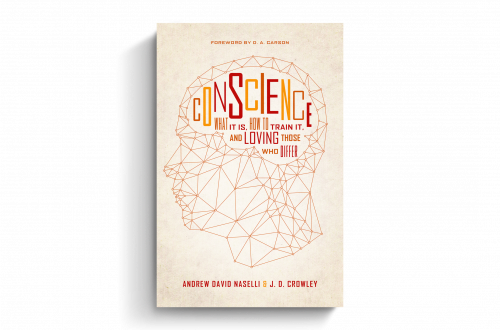![]() Jim Hamilton has given us an iconoclastic rendering of the theology of Daniel in his latest book With the Clouds of Heaven: The Book of Daniel in Biblical Theology (InterVarsity, 2014). This latest addition to the New Studies in Biblical Theology series takes some hard shots at the critical orthodoxies concerning a late date for Daniel. In addition, it presents Daniel’s message in line with the overall story of the Bible. It’s the kind of canonical approach that tends to irritate the myopic vision of some Old Testament scholarship. That is why D. A. Carson says,
Jim Hamilton has given us an iconoclastic rendering of the theology of Daniel in his latest book With the Clouds of Heaven: The Book of Daniel in Biblical Theology (InterVarsity, 2014). This latest addition to the New Studies in Biblical Theology series takes some hard shots at the critical orthodoxies concerning a late date for Daniel. In addition, it presents Daniel’s message in line with the overall story of the Bible. It’s the kind of canonical approach that tends to irritate the myopic vision of some Old Testament scholarship. That is why D. A. Carson says,
“Dr Hamilton’s work is also an implicit call to engage in similar work on other biblical books, in self-conscious determination to reverse two centuries or more of atomistic approaches to Scripture” (p. 14).
I couldn’t agree more.
Hamilton was kind enough to answer some questions from me about this work. My questions and his responses are below.
1. If I’m not into prophecy charts and “Left Behind” speculation about the future, is this book for me?
Definitely. I wrote this book in part because I couldn’t find an evangelical biblical theology of Daniel that wasn’t advocating either covenant theology or dispensationalism. I wanted to go back to Daniel and let him establish the categories rather than trying to defend a pre-conceived system, whether amill or pre-trib/pre-mill.
This book, as D. A. Carson says about the series it’s in, is for “thinking Christians who want to understand their Bibles better.”
2. Why do we need a book about Daniel in biblical theology?
I think we need books about how every book in the Bible fits in biblical theology! The point of biblical theology is to trace out the big story of the whole Bible, to see how the symbolism the authors use communicates, interprets, and summarizes that story, and to embrace the lifestyle and worship practices that correspond to and flow out of that story. There is a lot of work to be done, too, examining how particular books have interpreted earlier Scripture and how they in turn are interpreted in later Scripture.
3. Why is the critical consensus wrong about the dating of Daniel? Do you have any evidence for your view?
The critical consensus, which has crept into left-wing evangelical thinking, is that Daniel was written around the time of the Maccabean crisis in the 160’s BC. This assumes, of course, that Daniel did not write the book (even though Jesus attributes it to him in Matt 24:15) and that the “prophecies” in the book were actually not predictions of what would happen in the future but descriptions of what had already happened in the past.
I present evidence in the book that is based on manuscript evidence, textual and inter-textual evidence, as well as considerations historical, moral, and theological for the idea that the book was written by Daniel in the time that the book indicates Daniel was alive–between roughly 620 and 536 BC. To my thinking, the fact that Jesus attributes statements in the book of Daniel to the prophet Daniel settles the matter.
4. Is the “one like the son of man” in Daniel 7 the same figure who appeared with Shadrach, Meshach, and Abednego in the fire?
I think that if Daniel had intended for his readers to draw that conclusion he would have given some kind of indication that he wanted readers to see that the two figures were the same. He could have overtly said something like what he says about Gabriel in 9:21, where he describes him as “whom I had seen in the vision at the first” (Dan 9:21). Or Daniel could have used the same language to describe the fourth man in the fire (Dan 3) that he uses to describe the one like a sone of man (Dan 7). Since he doesn’t do either of these things, it doesn’t seem to me that Daniel thought the two figures were the same, and it doesn’t seem that he intended his audience to think they were.
5. How does your premillennial view emerge from your reading of Daniel’s seventy weeks of years?
I wouldn’t say it emerges from my reading of Daniel’s 70 weeks in Daniel 9, though I would say that in Revelation John has interpreted Daniel’s 70th week in a way that fits with his presentation of the millennium in Revelation 20.
I think John interprets Daniel’s 70th week as the time between the first and second comings of Jesus. I also think the millennium explains the way Daniel 7:12 says, “As for the rest of the beasts, their dominion was taken away, but their lives were prolonged for a season and a time.” Paul says that Jesus will kill the antichrist with the breath of his mouth in 2 Thess 2:8, and Daniel says that the antichrist beast was killed at the coming of the one like the son of man (Dan 7:11, 21–22, 26).
I read these texts to indicate that at the second coming, Jesus will kill the antichrist (2 Thess 2:8; Dan 7:11), but these other beasts have their lives “prolonged for a season and a time” (Dan 7:12). Perhaps these other beasts symbolize the peoples who will not praise God for the way he has conquered (Zech 14:17–19), and perhaps they portend the peoples who will join Satan as soon as he is released at the end of the millennium (Rev 20:7–10).
6. How does the New Testament interpret Daniel’s message?
Briefly: the New Testament authors interpret Daniel as a historically accurate prophecy that typologically portends the future and provides stock language that can be used for future prediction as well as descriptions of things past, present, and future.
Explanations and evidence in the book!
7. What do you hope readers will take away from this book?
I hope people will see how Daniel has signed onto the wifi network of the wider biblical narrative and used that as the assumed matrix on which the web of statements he has made in his book are to be surfed. I hope they will come away convinced that the God of Daniel really can deliver his people from fiery furnaces and reveal the future, that they will learn from Daniel that God delivers those who trust him (cf. 3:28; 6:6:23), that he humbles arrogant kings and crushes their kingdoms (Dan 4, 5, 7–12), and that God will raise the dead and reward the righteous and punish the wicked and cause the Kingdom of the Son of Man to reign over all the earth.
With all this, I hope they will hate sin and love God and become those who are “wise,” who will “make many understand,” because they “know their God” and therefore “stand firm and take action” (Dan 11:32–33).




4 Comments
Steve Lynch
The title of the book looks to be taken from Daniel 7:13… the verse of Blasphemy.
The verse that got Jesus crucified by the religious establishment of the time.
Pingback:
Samson Tilahun
Dr. Burk, thanks for this post. I’m glad Daniel were able to login….Jonah have had issues at first. I think the WiFi analogy is helpful and also funny. Does this book reflect, the ‘interpretive perspective’ of the biblical authors that he was talking about?
Pingback: